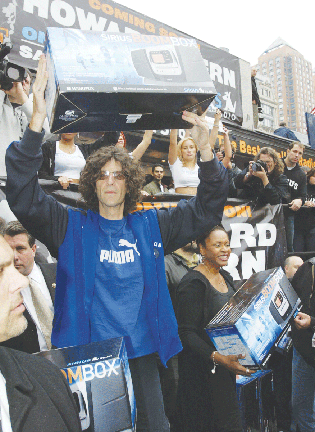Cancer Still #1 Health Concern, Especially for Minorities
September 23, 2004
Cancer and the fear of cancer are still ranked as the number one health concerns, according to the president of the Dana-Farber Cancer Institute.
Edward J. Benz, Jr., M.D., gave the convocation address before a roundtable panel of UMass professors and community leaders, calling cancer the “waiting-for-the-other-shoe-to-drop disease.”
“So every time you wake up with a sneeze or a little flicker in your eye, you wonder if the Big C is back,” he said. Cancer holds a large place in the American psyche, Benz said. “If most people in the country could make a health problem go away with the wave of a wand, say if you could pick only one, they would pick cancer.” Many fear to hear the diagnosis from their doctor. “The words from a health care provider, ‘You have cancer,’ or ‘Your mother has cancer,’ or, most terribly, ‘One of your children has cancer,’ remains the most dreaded message that one can receive in the American health care system,” he said. Benz said this is partly because cancer carries a cultural and biological reality, depending on its stage and type, that it will be a death sentence. Partly it is because cancer is very common and has a “certain inevitability.” The risk of cancer goes up as people get older.
“So we need to eradicate cancer, and that’s why institutes like ours and programs like ours and massively funded federal agencies like the National Cancer Institute exist,” he said. Over the years, UMass Boston and Dana Farber have had numerous ventures together. Benz, for whom this is a personal battle with several of his family members having either survived or died of cancer, recalled the 1970s, when he was in his medical training. Back then most cancer was treated with surgery, some with radiation, and chemotherapy was gaining some traction as a modality of care, he said. Overall, children and adults had a percent-chance of living five years with cancer that was somewhere in the high 30s and the low 40s. “Today, regardless of the type of cancer and regardless of your age, your chances of surviving cancer for at least five years and being in good health at the end of those five years, the likelihood of additional survival are around the order of sixty to sixty-five percent,” he said. Some of that is attributable to better screening, early diagnosis, and cancers that are still treatable by relatively simple forms of surgery, as well as less-extreme forms of radiation therapy.
The gains have been small and incremental, he said. But there is good news. Chemotherapy has gone from a “terribly blunt instrument” to a set of approaches that can be used and, while “highly imperfect,” can eradicate or control some forms of the disease. It is at the point where some people die with the cancer, not because of it. Hodgkin’s disease, testicular cancers, certain gynecological cancers, and many forms of breast cancer are now “either curable in half the cases or at least highly manageable,” he said.
Early diagnosis with surgery remains the only sure way to eradicate cancers permanently, for most of the common ones at least, Benz said. “So while we’re making measurable progress, we have an enormous way to go.”
A clear and dramatic disparity in cancer statistics remains between those of a different race and class. Benz noted an African-American male with prostrate cancer has three times the likelihood of dying of that cancer than a Caucasian male. “I could walk through colon cancer, I could walk through any one of the number of things, and you would find the same grim statistics,” he said. “It’s true for African-American members of our society, it’s true for Hispanics, it’s true to some degree for Asians, particularly immigrants from Asia.”
Socio-economic status plays a role in determining survival rates, Benz said. “If you’re not in the health care system, you’re not likely to get a mammogram, you’re not likely have your PSA tested, you’re not likely to have regular colonoscopies, which makes colon cancer ninety-percent preventable.”
For them, even as it gets better for the rest of society, it gets worse for them, since the statistics remain static, according to Benz, as outcomes improve for others. “This is a huge segment of our society that is not participating and is not benefiting from the advances that are being made in cancer care and treatment,” he said. “I fear that the more progress we make, the wider the gaps are going to get.”
People need people to participate in clinical trials and diversify the population getting into the Dana-Farber Institute, he said, adding that the cultural barriers need to be overcome, as does the distrust that exists in those communities by decades of inappropriate treatment by academic centers in the communities. “This has to be attacked on every front,” he said.
With the help of UMass Boston and others, Benz said the message needs to get out to communities that the health care institutions should not be the last resort. “To the students and to the faculty that are here, I say regardless whether you’re in marketing, in the media, in health care, in biology, you can make a difference here,” he said. “Because we have to learn among other things how to get our message out to these communities that academic centers are places to come early in cancer care, they’re not just places of last resort.”
Experts are needed in all fields, he said. In politics, public policy, “so we can come up with better ways than we’ve got right now to not just open the doors but have people come through them in our academic centers.”






















































